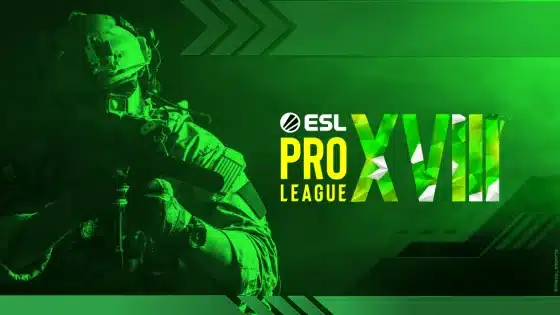
Why ESL Pro League Season 18 Will Not Switch To CS2
| Tags: CS2
| Author The News One

We have finally entered the age of CS2, but why did the ESL Pro League Season 18 will stick with the old format of the game?
Counter-Strike 2 made its official debut on Wednesday, September 27, marking the fifth installment in the game franchise. It was introduced as a complimentary upgrade to Counter-Strike: Global Offensive, which was released in 2012.
— CS2 (@CounterStrike) September 27, 2023
In light of the new Counter-Strike game release, avid fans of the series were eagerly anticipating whether the ESL Pro League Season 18, initially launched as a CSGO event, would transition to Counter-Strike 2 for the playoffs. The organizers remained open to the idea, suggesting that their decision would be guided by the players' preferences. Following the game's release, ESL finally unveiled its definitive stance on the matter.
ESL Pro League Season 18 Will Not Embrace CS2
ESL has decided that Counter-Strike: Global Offensive will remain the battleground for the remainder of the ESL Pro League Season 18 playoffs, despite the introduction of Counter-Strike 2 on Wednesday. Many fans had expected to enjoy the final part of the tournament in CS2, but the tournament format will remain unchanged.
Dota 2 players complain about patches in the middle of a tournament
Bro Valve's gonna drop CS2 tomorrow and it's ESL Pro League S18 Grand Finals on Sunday 💀💀💀
— Arseny Kuzminsky (@_koozya) September 26, 2023
This news from ESL came after the new game was officially launched, coinciding with the second round of the ongoing playoffs bracket in Malta.
“As the tournament is currently ongoing and in order to preserve the tournament integrity EPL S18 will continue to be played on CSGO,” ESL said in its statement.
#ESLProLeague Season 18 will continue to feature CS:GO 👇
Stay tuned for more updates on how CS2 will affect the #ESLProTour! pic.twitter.com/jIXG6jYV2J
— ESL Counter-Strike (@ESLCS) September 27, 2023
Before the playoffs went underway, the tournament organizers discreetly conducted a survey among the participating teams, exploring the potential transition to Counter-Strike 2 for the latter phases of the bracket, contingent upon the new game's release. ESL has chosen not to disclose the survey's outcomes or whether the ultimate decision was influenced by it.
The idea of transitioning to CS2 midway through the playoffs sparked considerable debate within the gaming community. To many, it initially appeared as a far-fetched and implausible concept, primarily because it raised concerns about jeopardizing the tournament's integrity. This concern stemmed from the fact that a significant portion of the event had already unfolded within the established CSGO framework.
Why Did ESL Choose To Stick With CSGO
In situations where a significant gameplay update is expected to coincide with or occur shortly before the start of a major esports competition, entities such as ESL and BLAST, which oversee the majority of elite Counter-Strike tournaments, tend to follow a particular approach. This approach involves opting to run the tournament using a previous game version rather than promptly implementing the most recent update.
This strategic decision is driven by several important considerations. First and foremost is the need to maintain competitive integrity. Esports tournaments, particularly those at the highest level, prioritize a level playing field where all teams and players have ample time to adapt to any gameplay changes. An abrupt introduction of a new update could disrupt team strategies and gameplay dynamics, potentially giving some teams an unfair advantage over others.
Furthermore, it allows players and teams to maintain a sense of familiarity with the game's mechanics and strategies they have practiced extensively. Switching to a new version of the game right before or during a tournament can be akin to introducing a whole new set of rules, which can be both challenging and disorienting for competitors who have prepared for months in advance.
Additionally, broadcasting and production logistics play a crucial role in this decision-making process. Running a tournament on a well-established game version ensures that production crews, commentators, and spectators are familiar with the gameplay, making for a smoother and more engaging viewing experience. Sudden changes to the game can disrupt the flow of the broadcast and create confusion among viewers.